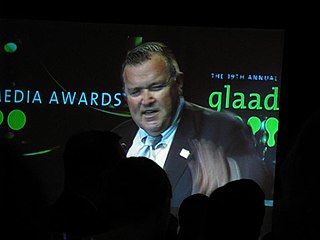A Quote by David Mixner
Pharmaceutical companies have invested hundreds of millions of dollars in new HIV/AIDS treatments not out of altruism but because they can make up those research costs in sales.
Related Quotes
HIV/AIDS from converted from a lethal disease into a chronic disease because basic scientists' fundamental research was done that illuminated aspects of that virus and allowed the generation of therapies like antiretroviral therapies. And so now HIV/AIDS is not a lethal disease, it is a chronic disease.
You can think of the Health Impact Fund as a mechanism that would keep the benefits and burdens of pharmaceutical innovation for the affluent roughly as they are while massively reducing the burdens presently imposed upon the poor. This sounds like magic. But it really works because the current system is not Pareto efficient. It's a system that generates hundreds of billions of dollars in litigation costs and deadweight losses that HIF-registered medicines would sidestep. By avoiding these losses, the HIF reform can bring improvements all around - including for pharmaceutical innovators.
If people are encouraged to come out and say they're HIV-positive and they're given their treatments, then obviously, the people who are marginalized - like intravenous drug users, prisoners, people are made to feel less-than - if they're given the support of the government, and they're given the funding, then it's going to help solve the spread of AIDS and HIV in America.
It's easy to complain that pharmaceutical companies place profits over people and apparently care more about hair loss than TB. However, many in the pharmaceutical industry would be glad for the opportunity to reorient their research toward medicines that are truly needed, provided only that such research is financially sustainable.
As a new mother, I want to give my children the best start in life but millions of children affected with AIDS don't live with such certainty. We can all do something to give them a future worth living for. We can make a difference in a child's life by joining with UNICEF to ensure that mothers and children are given the treatment that they deserve, in order to live a life free from HIV and AIDS.
In a large pharmaceutical company, where it's a big bet, you're going to need finance people to be involved in the decision-making because the investment can run into the hundreds of millions of dollars. You're going to have to run scenarios. You might even need agreement from the C.E.O. to make that type of decision. If it's an incremental, low-cost decision in a marketing-oriented company, it may be a very different set of stakeholders a lot further down in the organization.





































